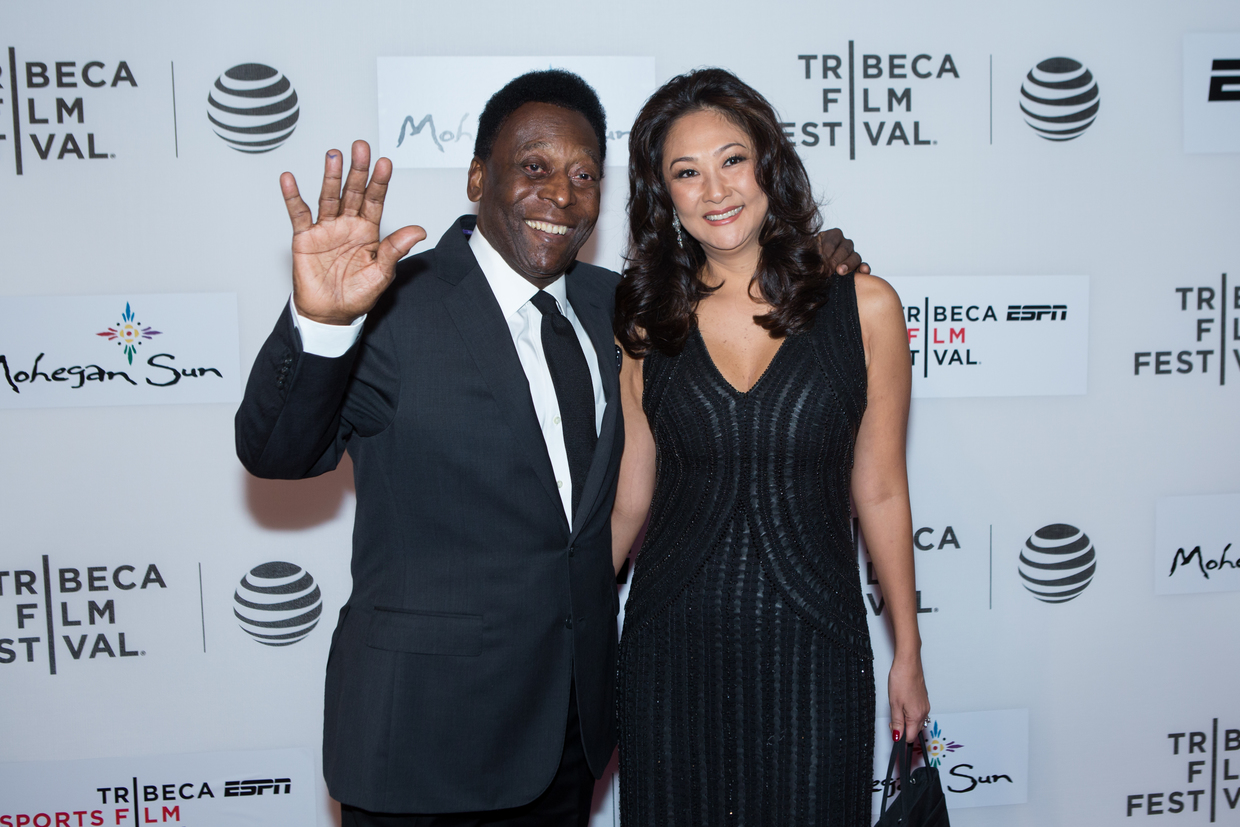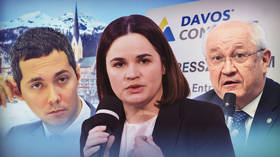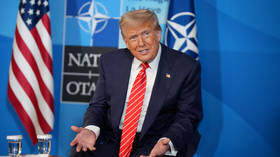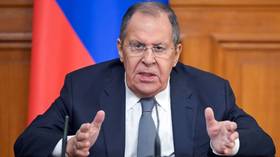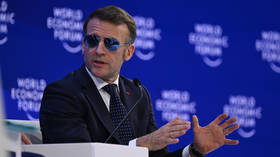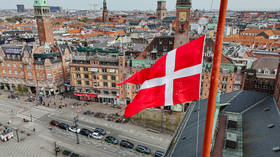Pele: From humble beginnings to football’s first global superstar
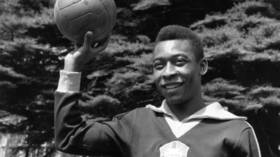
Brazilian football legend Edson Arantes do Nascimento, better known as Pele, has died aged 82 in Sao Paulo.
Pele’s passing at the Albert Einstein Hospital in Brazil’s largest city follows a prolonged period of ill-health and a battle with colon cancer.
The football icon had a tumor removed from his colon in September last year, and had been visiting the hospital on a regular basis. Fresh fears for his health emerged when he was readmitted for treatment in November.
Reports followed that Pele had been moved to palliative care due to chemotherapy treatment no longer having the required effect. The worst was confirmed on Thursday as news of Pele’s passing prompted mourning for one of the most iconic figures to have graced any sport.
As a three-time World Cup winner, Pele forged a legacy which established him among the greatest footballers – if not the greatest – of all time. His death marks the end of remarkable life and career; one which took him from a modest background and propelled him to become football’s first global superstar. Here, we look back on the life and career of a true sporting great.
Humble beginnings, Santos, and a teenage professional debut
Pele was born on October 23, 1940, in the town of Tres Coracoes, Minas Gerais, but he grew up in poverty in Bauru around 330km and four hours from Sao Paulo.
His family, headed by ex-Fluminense football player Dondinho and his wife Celeste Arantes, originally gave him the nickname “Dico”. But the way he mispronounced the name of his favorite player – Vasco da Gama goalkeeper Bile – later earned him the name Pele.
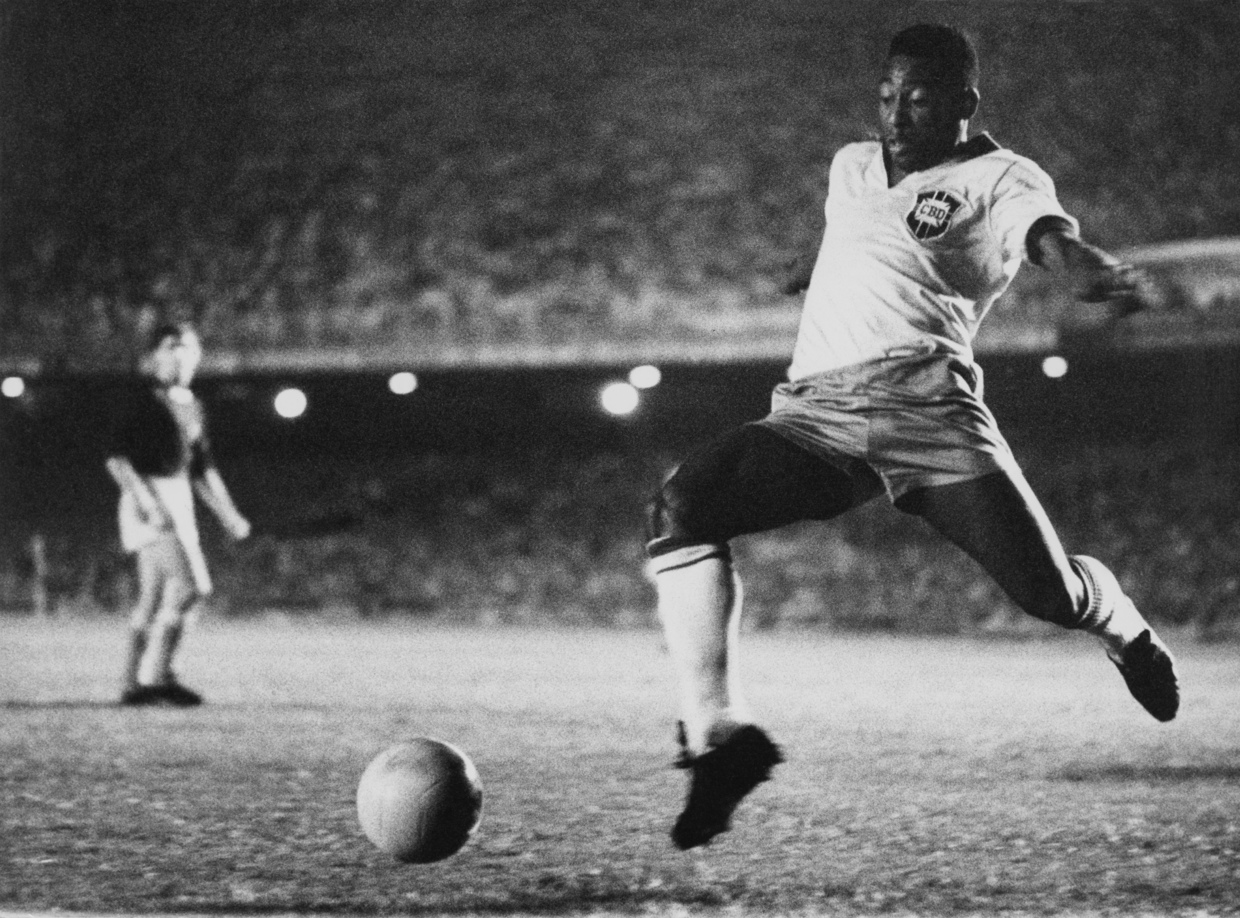
A young Pele helped his family by earning extra money working in tea shops but could not afford a proper football. Instead, he practiced by playing with a sock stuffed with newspaper and then tied with string.
After turning out for several amateur clubs, he led Bauru Athletic Club’s junior team to two Sao Paulo state youth championship wins. Pele gained confidence by playing futsal with adults as a 15-year-old. His coach at Bauru, Waldemar de Brito, took him for a trial at Santos in 1956 and told the coastal club’s directors that Pele would be “the greatest football player in the world.”
Pele impressed enough to receive his professional contract in June that year and scored on his debut on September 7 when Santos beat Corinthians de Santo Andre 7-1. Tipped to become a future superstar by the media, he was a starter by the time the 1957 season began.
Call-up to the Brazil national team, first World Cup win
As the top scorer in the league in 1957, Pele was called up to the Brazil national team just 10 months after turning professional. To this day, he remains the Selecao’s youngest debutant after featuring against Argentina in a 2-1 defeat at the Maracana in Rio de Janeiro aged just 16 years old.
Pele stood out as the complete forward, able to effortlessly switch from a goalscoring striker to a deeper-lying playmaker who provided assists with his superlative vision and precision passing. Gifted with flawless dribbling and a repertoire of skills, he also possessed supreme mental toughness and was unfazed by constant kicking from the opposition.
Pele’s exploits for Santos saw him selected for the 1958 World Cup in Sweden despite nursing a knee injury. After he recovered and his teammates demanded he was picked by Vicente Feola, Pele became the youngest ever player at the World Cup at the time. Brazil beat the USSR 2-0 in his debut, and Pele made an instant impact by assisting Vava’s second goal in the third match of the first round.
Pele scored the first of eight career goals at the World Cup in the quarterfinal against Wales in a 1-0 win. In the semifinal against France, with the score 2-1, Pele netted a stunning second-half hat-trick in 23 minutes, and went on to bag a brace in a 5-2 win over hosts Sweden in the final.
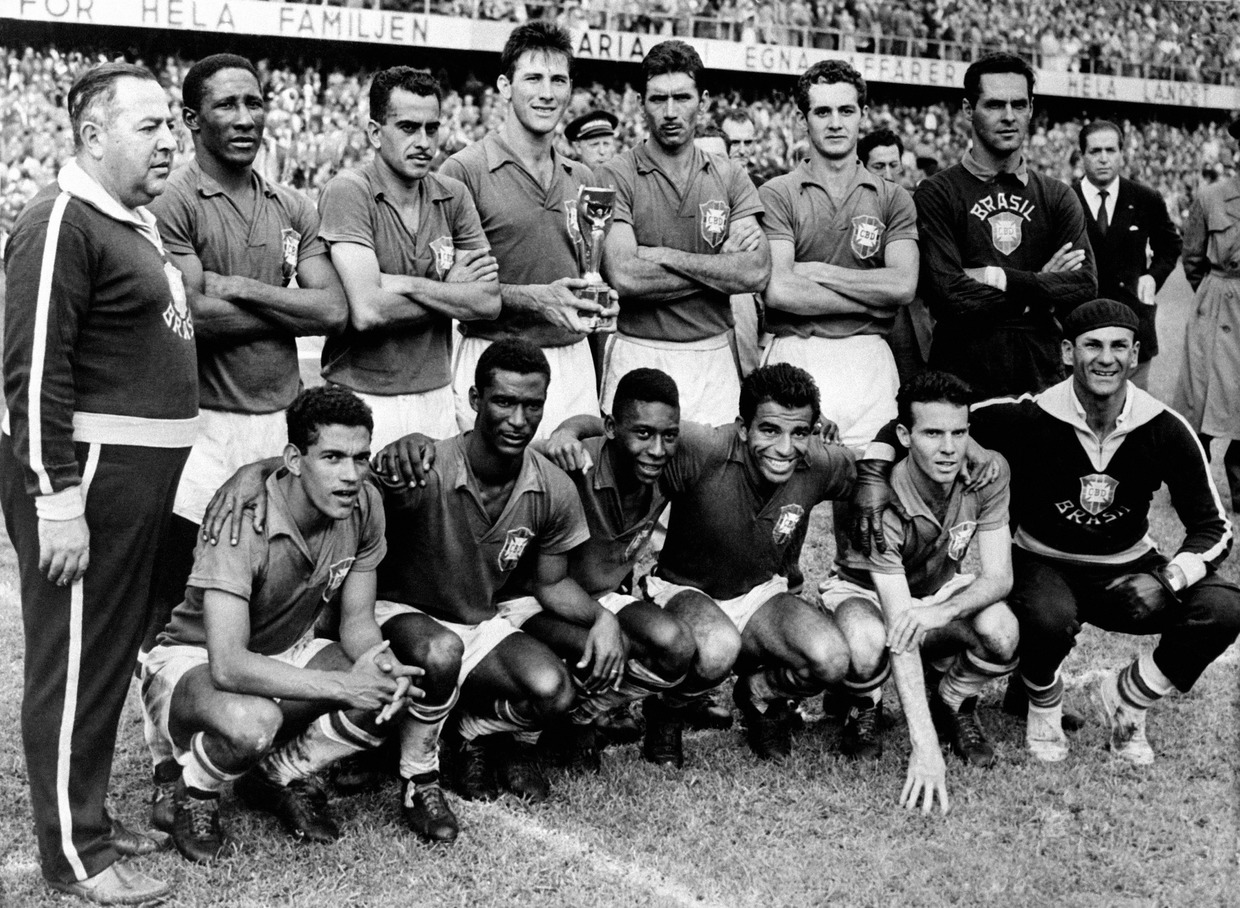
Helping a nation heal after a shock 1950 loss in the final against Uruguay at their own home World Cup, Pele instantly became a folk hero in Brazil through his exploits. He fulfilled a promise to his father with the triumph, after vowing to him as a nine-year-old that he would avenge the heartbreaking defeat at the Maracana.
European interest, success with Santos, two more World Cup wins
Santos had to bat away an approach from Inter Milan to sign Pele upon his return home amid a revolt from their fans, which proved a master stroke as the Sao Paulo state club ushered in its most successful era. Santos won the Campeonato Paulista in 1958 and 1959, plus the Torenio Rio-Sao Paulo tournament featuring the biggest clubs from the country’s two biggest cities.
In 1961, Pele won the Brazilian national league, and the year 1962 became one of the best in his career. Pele went to the World Cup in Chile regarded the best player on the planet, and started the tournament in fine form against Mexico with a goal and an assist in a 2-0 win.
Pele was injured in the next match against Czechoslovakia, forcing him to miss the remainder of the tournament, but still picked up a winner’s medal as Garrincha took a leading role in Aymoré Moreira’s team and beat the Czechs in the final for Brazil to retain their title.
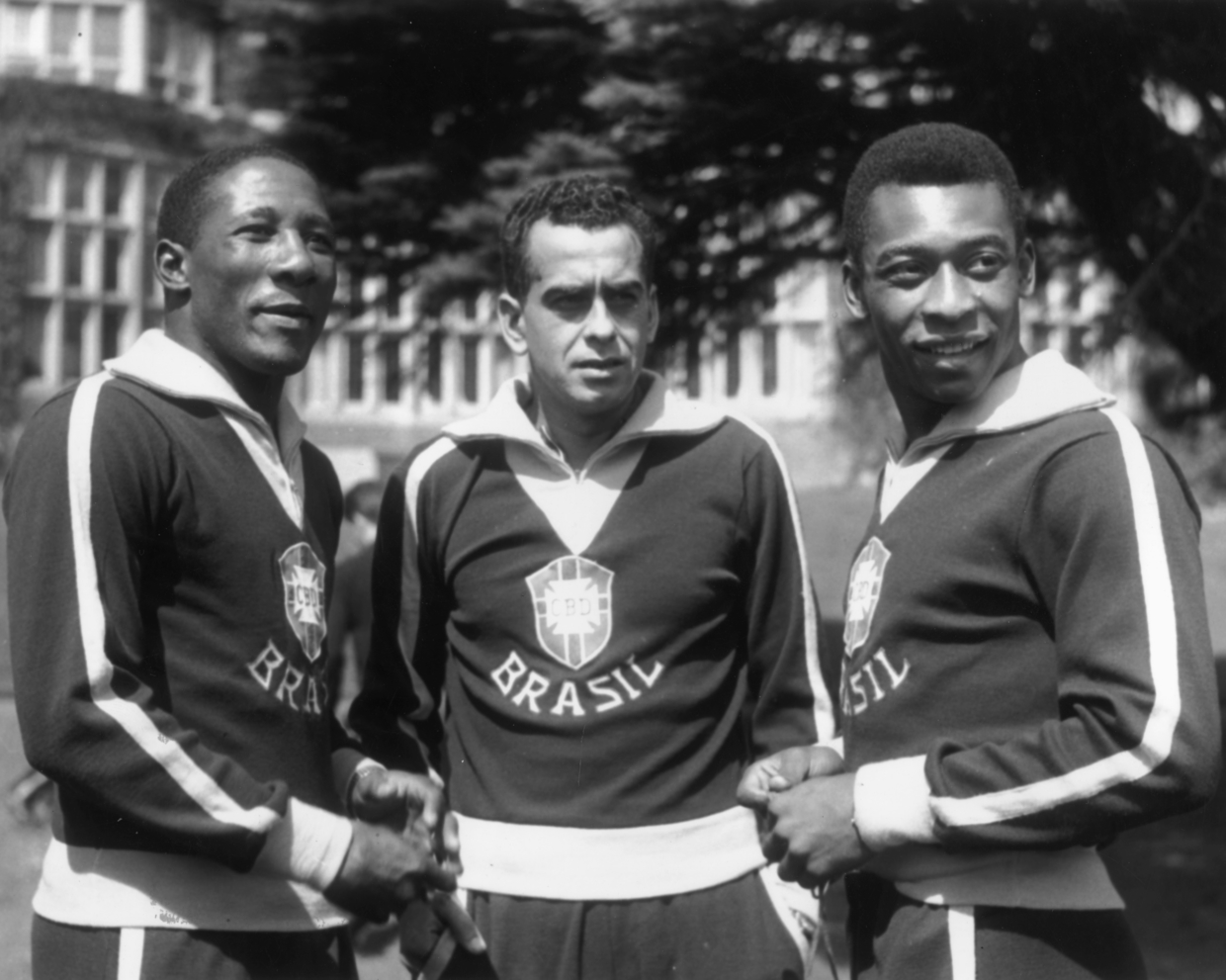
Back at Santos, Pele won the Brazilian national league, the Campeonato Paulista, South America’s equivalent of the Champions League in the Copa Libertadores, and the Intercontinental Cup against Benfica in a two-legged affair in Rio and Lisbon.
To football fans, Pele’s hat-trick in the Portuguese capital as Santos won 5-2 in the second leg is regarded as the greatest individual performance in the historic competition that pitted the champions of Europe and South America against one another. Other European giants that tried and failed to sign Pele after the 1958 and 1962 World Cups included Real Madrid, Manchester United, and Juventus.
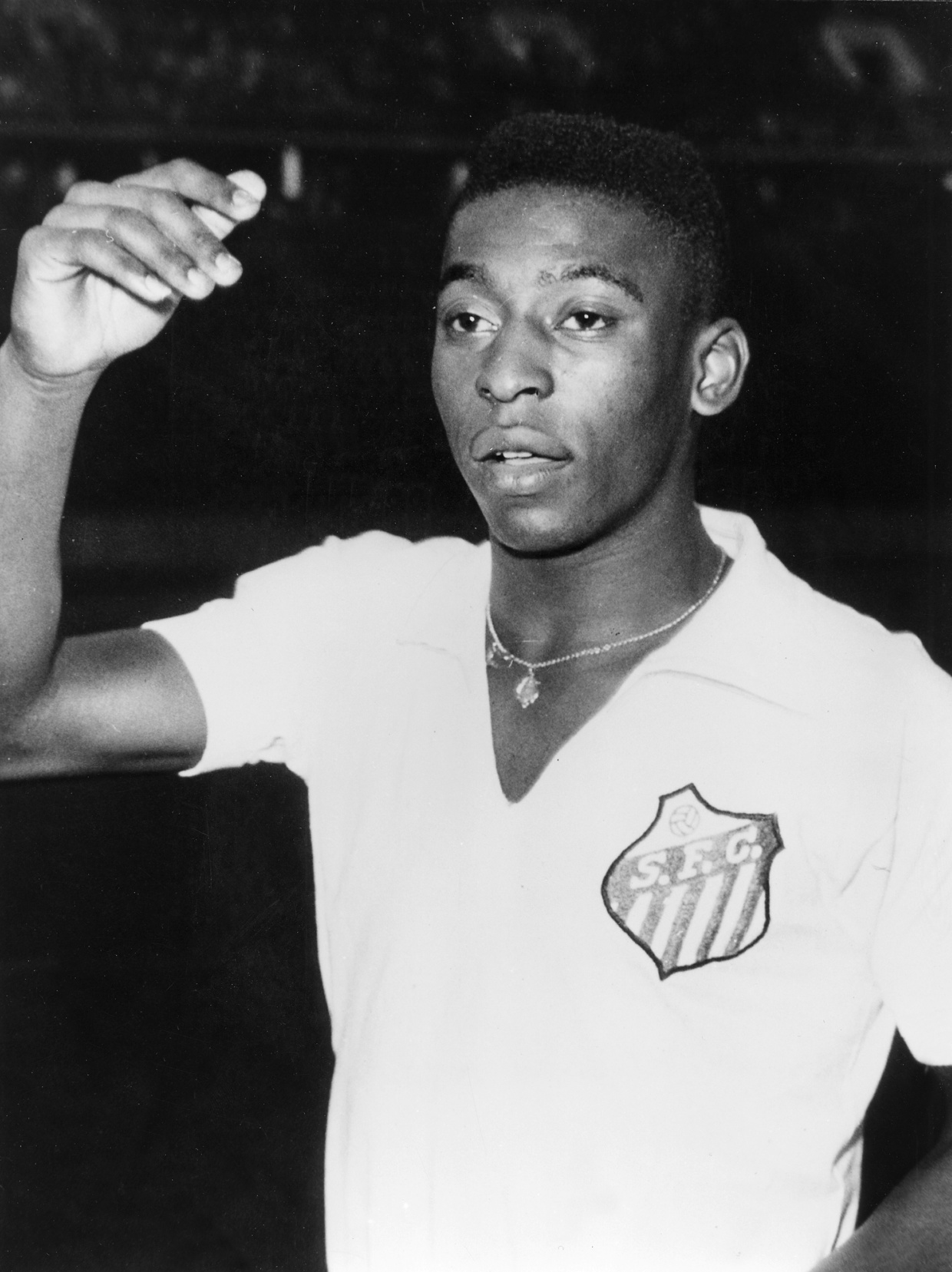
The 1966 World Cup in England, won by the hosts, was one to forget for Pele and Brazil. Four years later, however, redemption was achieved in Mexico when he led them to a third title, after reportedly receiving pressure from the military regime in power at the time to return to the international fold and add another star to the fabled yellow-and-green jersey.
International retirement, leaving Santos, the United States
Pele retired from the Brazil national team in 1971 and left Santos in 1974 with six national titles, two Copa Libertadores, two intercontinental cups, and 10 Campeonato Paulistas. He joined the New York Cosmos in 1975, and won them the Soccer Bowl in 1977 alongside German great Franz Beckenbauer.
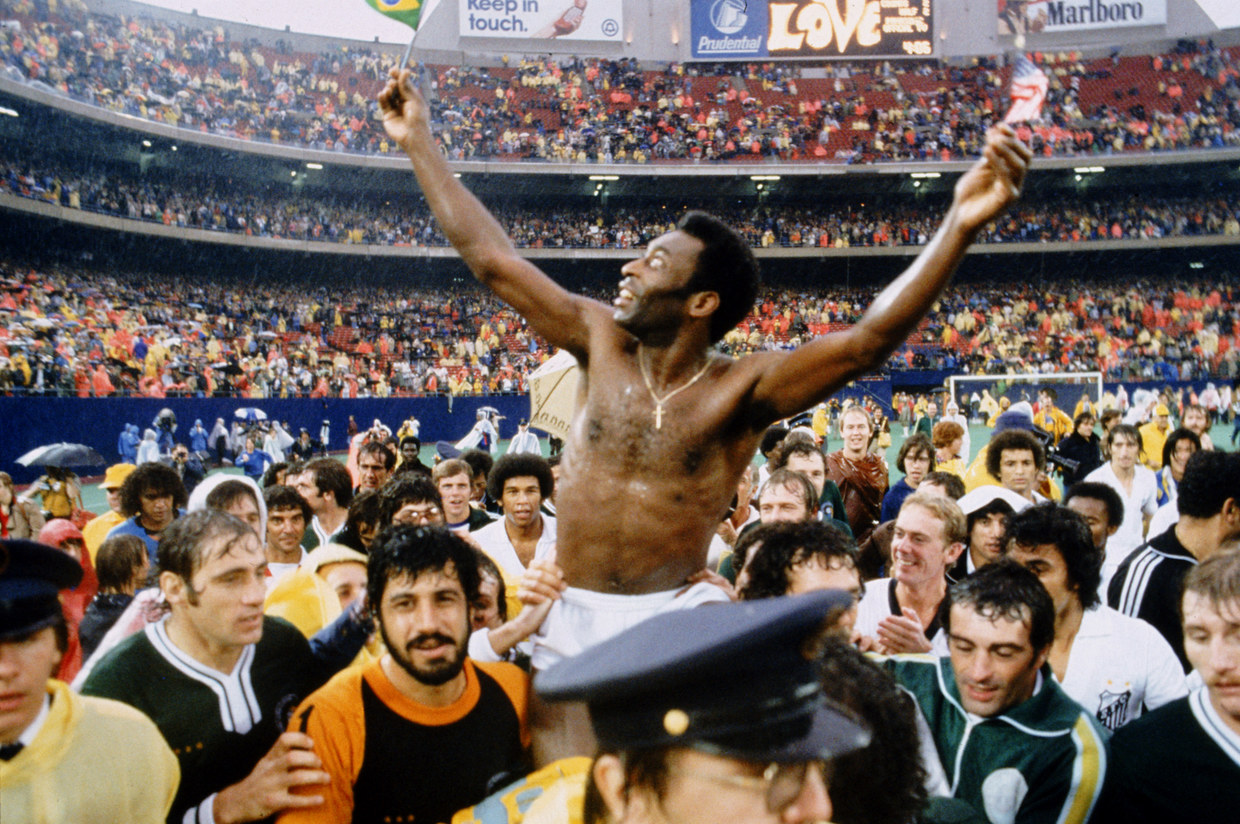
Aged 36, Pele called time on a 21-year playing career in October of that year. Pele is recognized by the Guinness World Records as scoring 1,279 goals in 1,363 matches, which includes friendlies and tours that Santos would often take around the world.
His feats have often been the source of social media discussion in the modern age of Cristiano Ronaldo and Lionel Messi fandom, but even though Pele existed in a time of more relaxed record-keeping, his prolific achievements are undeniable. There can certainly be no doubt about Pele’s tally for Brazil, with his 77 goals in 92 caps a record only recently matched by Neymar.
Post-career life
By the time he retired, Pele had already starred in a Brazilian telenovela about human contact with aliens in 1969. After hanging his boots up, he branched out into movies by appearing in the 1981 cult classic ‘Escape to Victory’ with Sylvester Stallone, which detailed a World War II-era match between a German team and Allied prisoners of war. In 2001, he had a cameo in the popular British satire film ‘Mike Bassett: England Manager’.
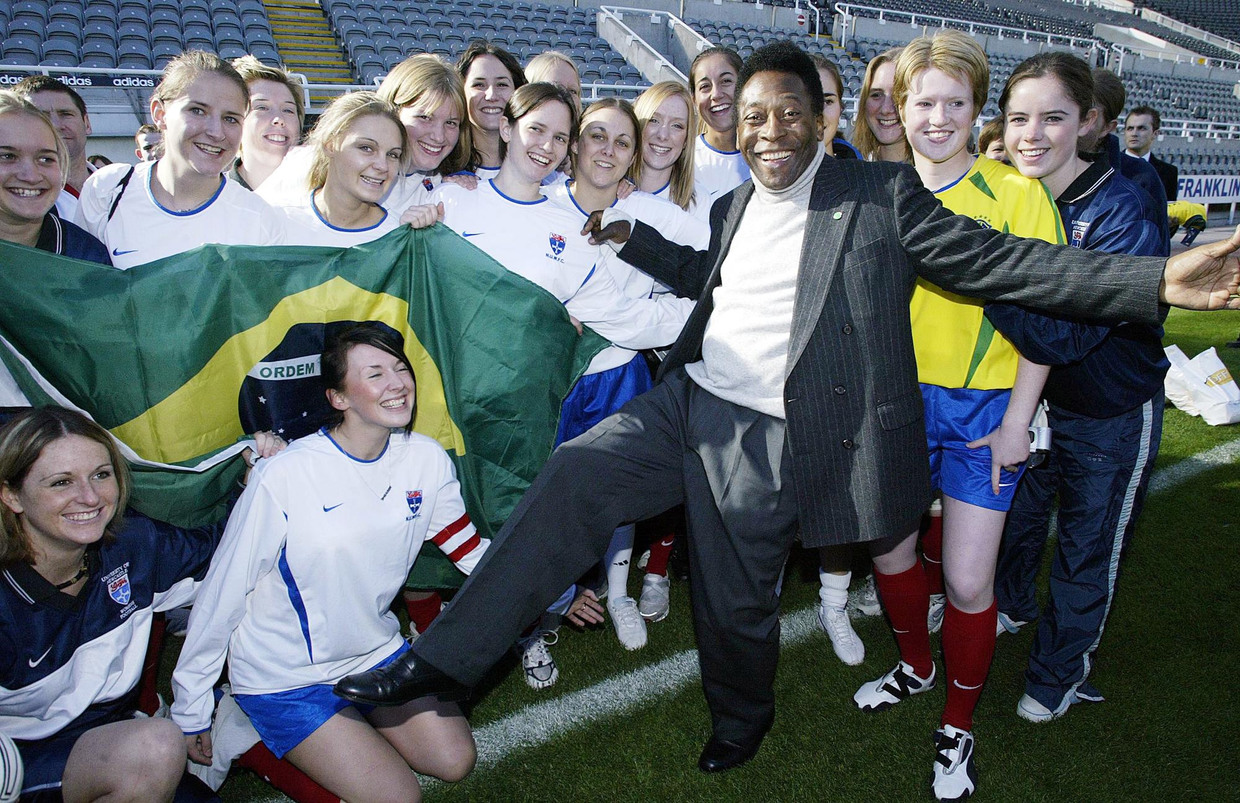
Perhaps Pele’s most noteworthy post-career contributions to society came through ambassadorial work. He was appointed a UN ambassador for ecology and the environment in 1992, and a UNESCO Goodwill Ambassador in 1994. He was awarded the position of Extraordinary Minister for Sport in Brazil in 1995, and in a further sign of his global renown, he also received an honorary knighthood from Queen Elizabeth in 1997.
Pele’s public appearances declined in recent years due to his deteriorating health, but he was seen at the World Cup draw in Russia in 2018 alongside President Vladimir Putin and Diego Maradona.
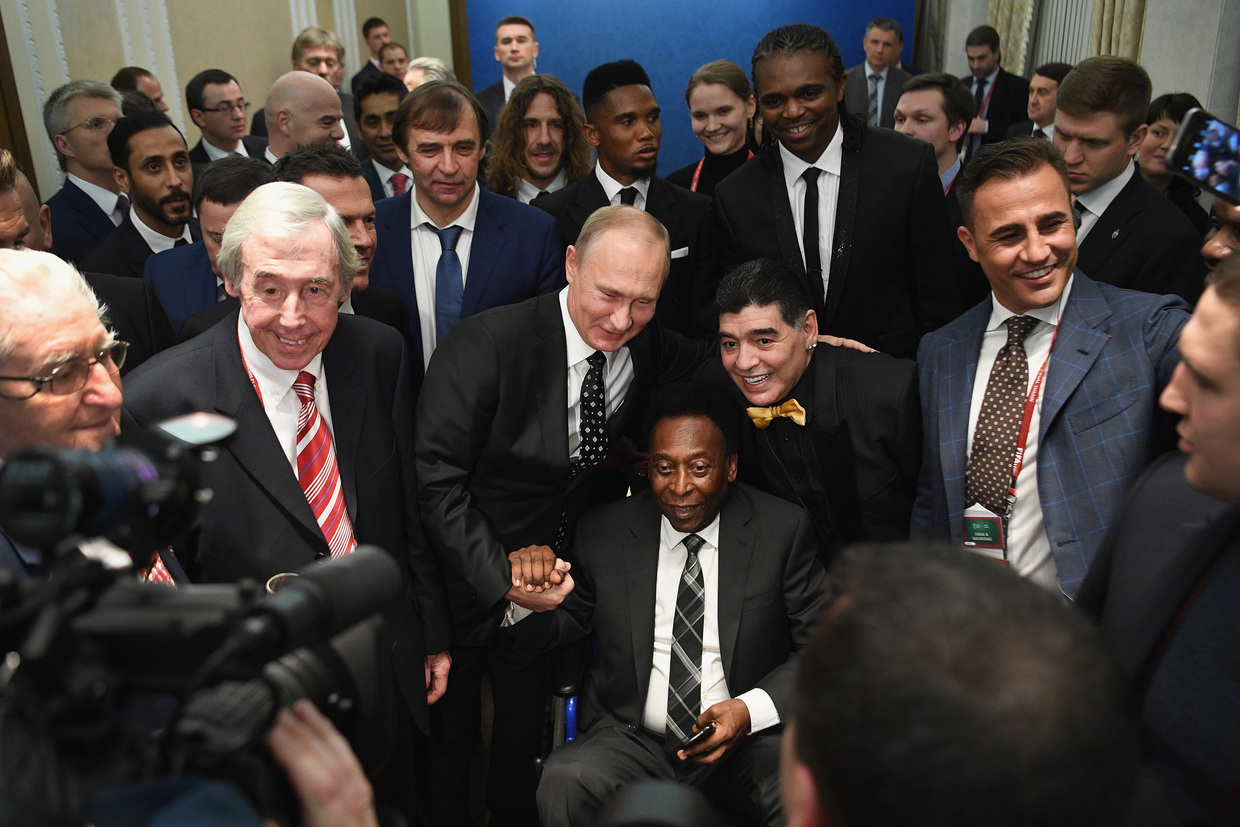
Legacy
Pele will be remembered as the greatest player of all time to many football fans, especially in Brazil. Those from neighboring rival Argentina might place the late Diego Maradona above him, while younger fans may opt for Maradona’s compatriot Lionel Messi or Portuguese icon Cristiano Ronaldo. Ronaldo himself is quoted as saying: “Pele is the greatest player in football history, and there will only be one Pele.”
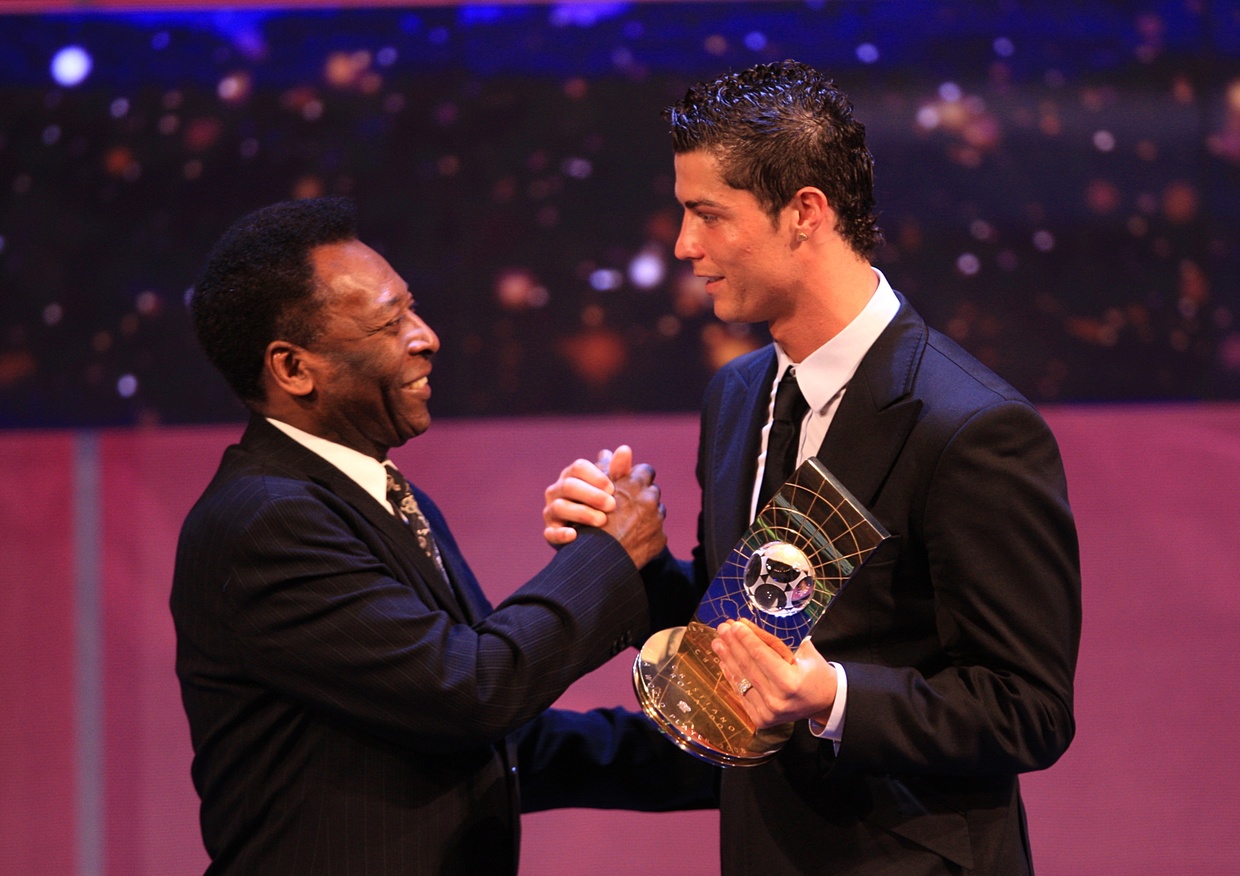
“The best player ever?” Real Madrid legend Alfredo Di Stefano once asked himself. “Pele. Lionel Messi and Cristiano Ronaldo are both great players with specific qualities, but Pele was better.”
Pele never won the Ballon d’Or in his playing days due to football’s highest individual honor previously only being awarded to Europeans. France Football revised this policy in 1995, and 20 years later, in 2015, it awarded Pele seven Ballons d’Or, which would tie him with Messi.
Further cementing his importance to the beautiful game, Pele shared the FIFA Player of the Century prize with Maradona in December 2000 and was named in the Ballon d’Or Dream Team, which is a greatest all-time XI, in 2020. Pele is survived by his third wife Marcia Aoki and seven children.
